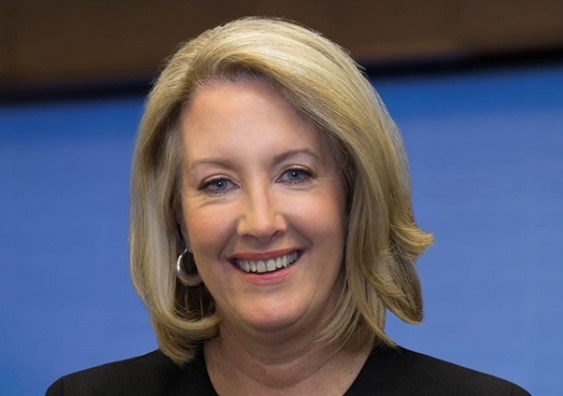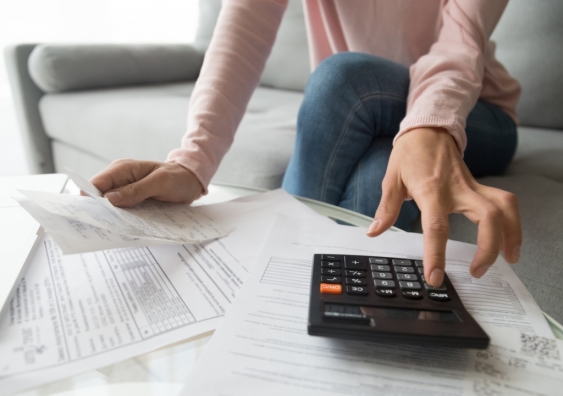Tax advice is a crucial form of support for women facing financial distress and economic abuse.
Suzie (not her real name) was cohabitating with her ex-partner despite concerns for her safety. She faced a lack of alternative housing and needed to file her taxes before she could start a new life without her partner. However, she was afraid to contact the Australian Taxation Office (ATO) since her ex-partner had (unintentionally) disposed of her financial documents.��
Assisted by the��UNSW Tax and Business Advisory Clinic, Suzie was able to contact the ATO and retrieve her crucial tax information. With the support of free tax advice, she successfully prepared and lodged her returns, gained financial security, and was empowered to break free from the coercive dynamics of her past relationship.����
Suzie's story highlights the real-world implications of the����women face across Australia and the crucial role of tax support in aiding financially vulnerable women experiencing domestic and family violence.��
The findings of a recent paper,��Identifying and supporting financially vulnerable women experiencing economic abuse: a grounded theory approach, conducted by researchers at the UNSW Tax and Business Advisory Clinic,��revealed a concerning trend. The study found that 58 per cent of financially vulnerable women seeking pro bono tax services have experienced domestic and family violence. Yet, only 3 per cent have received support specific to domestic and family violence.��
Co-authored by UNSW Sydney’s��Associate Professor Ann Kayis-Kumar,��Associate Professor Youngdeok Lim,��Professor Michael Walpole,��Professor Jan Breckenridge,��, and Villanova University Charles Widger School of Law’s Professor Leslie Book, the paper provides four key recommendations, mainly centred on tax law reforms to enhance tax services, and tackling gender-related issues in Australia’s tax and transfer system.����
A/Prof. Kayis-Kumar, of the School of Accounting, Auditing and Taxation, is a Founding Director of UNSW Tax and Business Advisory Clinic, which serves people experiencing financial hardship. A/Prof. Kayis-Kumar said this was��the first study in Australian academic literature to conceptualise tax debt problems as a potential symptom of domestic and family violence or economic abuse. She said the tax and domestic and family violence literature had been entirely disconnected to date, with the paper being the first to bridge this gap.
Tax advice: an unmet need for specialist domestic and family violence support services��
Data from the��has shown approximately 16 per cent of women (1.6 million) have experienced economic abuse by a cohabiting partner. This is compared to an estimated 7.8 per cent of men (745,000).��
While there is increasing recognition from governments and policymakers regarding the need for legal protections against the coercive control of women, several loopholes exist.
For example, being overdue on tax returns presents a substantial obstacle for individuals to access government assistance like childcare and child support. Women facing economic abuse may rely on tax refunds as a crucial lump sum in a given year. However, government departments often assume shared financial control within couples, leading to decisions like deducting childcare rebate overpayments from the mother's tax refund.��
Prof. Jan Breckenridge, Head of the School of Social Sciences and the Co-Convener of the��UNSW Gendered Violence Research Network, and co-author of the study, explained: “Women may not know what abuse is being perpetrated until they are made aware of a financial crisis or debt that has been incurred in their name. Until recently, we have not used the terms financial and economic abuse, nor have we positioned these tactics and behaviours as part of the broader experience of domestic and family violence.”��
Seeking to address this issue, researchers at the UNSW Tax and Business Advisory Clinic conducted a comprehensive study of 112 women who sought assistance at the Clinic from September 2019 to May 2023. Out of this sample, 71 responded to a question related to domestic and family violence. Of the respondents, 58 per cent self-reported experiencing domestic and family violence. This is notably higher than the general population, which stands at 27 per cent.
This means the study found a substantial correlation between financially vulnerable women and domestic and family violence, as financially vulnerable women seeking tax assistance at the clinic were��more likely to be affected by it than compared to the general population.��
The findings also revealed clients experiencing domestic family violence had diverse demographics. Between the ages of 24 and 82 years, the majority (61 per cent) were born in Australia, 11 per cent identified as Indigenous, 70 per cent self-reported mental health issues, and 27 per cent reported experiencing physical disability. Notably, 68 per cent of clients were small business owners, 78 per cent received Centrelink benefits, and 14 per cent were engaged in tax debt discussions with the Australian Taxation Office (ATO). ��
A/Prof. Kayis-Kumar said: “There is a substantial unmet need for specialist support services among this cohort, with only 3 per cent of clients receiving support despite the study period spanning from September 2019 to May 2023.”��
Why is economic abuse hard to identify?��
The study highlights how difficult it is to identify and support financially vulnerable women experiencing domestic and family violence. A/Prof. Kayis-Kumar explained: “The most worrying trend has been the consistently increasing rate of self-reported domestic and family violence amongst the study participants.����
“Our research finds that clients are more likely to report domestic and family violence when they are Indigenous, experiencing mental health problems, physical disability, and have tax debts (as opposed to tax issues related to disputes, lodgements, or general questions).”��
Economic abuse is already recognised in much of the domestic and family violence legislation across Australia, and recent initiatives like the National Principles to Address Coercive Control highlight the progress in the context of coercive control specifically. Starting July 2024, coercive control will be a criminal offence in NSW. However, there is still a noticeable gap in addressing coercive control within the tax system, which needs to be addressed in policy development and law design.����
Prof. Breckenridge explained that, unfortunately, many women themselves may not identify their experience as domestic and family violence. “This is particularly the case where there is a strict gendered division of financial management within the relationship, or where there is dependence on partners/adult children as carers (disability and older people), or there is an expectation of resource sharing amongst family members (Aboriginal and Torres Strait Islander people and some culturally and linguistically diverse communities).”��
A/Prof. Kayis-Kumar added: “At the start of our project, we anticipated that this research would help identify women who were experiencing economic abuse but were not aware that this constituted domestic and family violence (who we could then link to support services).����
“Instead, we found that all women experiencing economic abuse also self-reported domestic and family violence. So what was most worrying was that – despite knowing that they were experiencing domestic and family violence, very few were seeking support. Even fewer opted to be referred to a support service by the clinic. This highlights the complicated and insidious nature of economic abuse,” she said.��
What support is available to women experiencing economic abuse?��
Pro bono tax clinics can help identify women experiencing domestic and family violence and refer them to specialist domestic and family violence support services they might not be aware of and would otherwise not access.��
Currently, the ATO lacks the legislative means to provide relief from tax debts on the grounds of economic abuse. This deficiency sharply contrasts with the US, where 'innocent spouse relief’ has been a pivotal provision since 1971. Some of the co-authors in related����have described Australia’s existing hardship provisions as ‘outdated and in urgent need of reform’. ����
“There is a research gap in the Australian context on whether affording relief from tax debts on the grounds of economic abuse and economic hardship would have the potential to improve client outcomes and financial wellbeing and improve long-term trajectories of financially vulnerable taxpayers,” said A/Prof. Kayis-Kumar.����
This is the subject of����by the co-authors. In the meantime, the researchers have proposed four key policy recommendations:��
1. Increased tax literacy targeted at women��
Recognising the importance of tax literacy in combating economic abuse, the researchers have called for targeted public awareness campaigns to empower women by educating them about the nuances of coercive control within the tax system. The recommendation suggests establishing educational programs in collaboration with educational institutions and community organisations, offering tailored in-community workshops, seminars, and online resources to address women's specific needs.��
2. Increased scale of support services��
Acknowledging the likelihood of widespread need, the researchers have also emphasised the urgent expansion of free tax clinics to specifically prioritise and support victim-survivors of economic abuse. The focus is on marginalised cohorts, particularly single parents, low-income earners, and women with disabilities. The proposed collaboration with the community sector aims to address unmet tax and accounting needs effectively.��
3. Strengthening collaboration to prevent system abuse��
Reports of tax system abuse are identified as a significant challenge. To counteract this, the researchers recommended strengthening collaboration and information sharing between the ATO and Services Australia. This entails the implementation of comprehensive data-sharing agreements, balancing privacy concerns with the imperative of maintaining the integrity of the tax and transfer system.��
4. Implementation of regulatory and legislative solutions��
Inspired by the����provisions in the US, the researchers suggested assessing the feasibility and appropriateness of introducing a similar framework in Australia. While recognising the uniqueness of each system, Australia could adapt successful elements from the US, complementing the government’s efforts to implement��. This is the subject of ongoing work by the researchers.��
Implementing these recommendations would catalyse a pivotal transformation in Australia's tax laws, underscoring the necessity for a more compassionate and trauma-informed approach adopted in the design and administration of the tax system. The researchers have said these changes go beyond a plea for justice; they are a demand to safeguard the well-being of women experiencing economic abuse. ��
If you found any content in this article distressing, please contact����or��on 13 11 14.��
Media enquiries
For enquiries about this story and interview requests, please contact,��Katie Miller, News and Content Coordinator.
Tel:��+61 2 9385 4627
Email:��katie.miller1@unsw.edu.au
Related stories
-

Worried you’ll lodge a late tax return? At least 80,000 Australians can’t afford tax advice
-

Tackling economic and financial abuse linked to domestic and family violence
-

What does gender have to do with domestic, family and sexual violence?
-

The mental health costs of managing tax for small businesses






